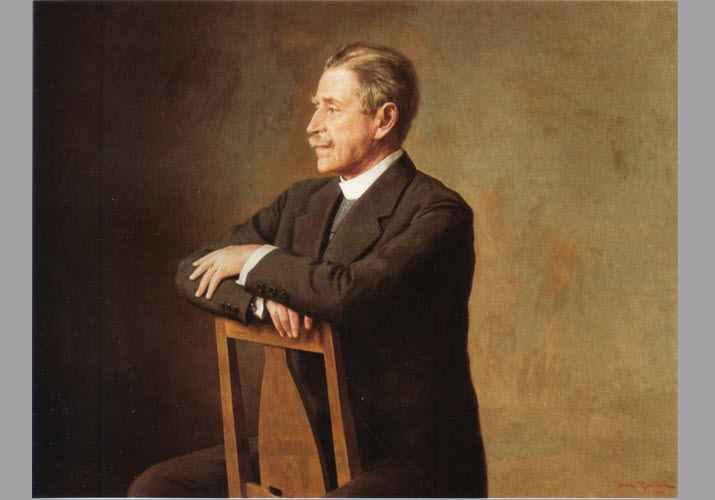The Life and Legacy of Verner von Heidenstam

Verner von Heidenstam (6 July 1859 – 20 May 1940) was a Swedish poet, novelist, and essayist. In 1916, he became the first Swedish writer to receive the Nobel Prize in Literature.
Early Life And Education
Verner von Heidenstam was born on July 6, 1859, in Olshammar, Örebro County, Sweden, into a noble family. His father, Gustaf von Heidenstam, was an engineer, and his mother was Magdalena Charlotta von Heidenstam (née Rütterskiöld) . Heidenstam attended Beskowska skolan in Stockholm and later studied painting at the Academy of Stockholm, although he had to leave due to ill health . He then traveled extensively across Europe, Africa, and the Orient, which greatly influenced his literary work .
Career And Achievements
Verner von Heidenstam initially pursued painting but eventually turned to writing, making a significant impact on Swedish literature. His debut poetry collection, “Vallfart och vandringsår” (Pilgrimage: The Wander Years), published in 1888, marked a departure from the prevailing realism and naturalism, embracing romanticism and sensuality.
Heidenstam’s notable works include “Karolinerna” (The Charles Men), a historical series about King Charles XII of Sweden and his soldiers, which became a staple in Swedish schools. His epic narrative, “Folkunga Trädet” (The Tree of the Folkungs), tells the story of a medieval Swedish clan and further solidified his literary reputation. In recognition of his contributions, Heidenstam was awarded the Nobel Prize in Literature in 1916, praised for being a leading representative of a new era in literature. He was also a member of the Swedish Academy from 1912 until his death in 1940. His works continue to be celebrated for their vivid portrayal of Swedish history and culture.
Notable Events And Milestones
Verner von Heidenstam significant milestones include the publication of his first collection of poems, “Vallfart och vandringsår” (“Pilgrimage and Wander Years”) in 1888, which marked his departure from naturalism and embraced themes of beauty and fantasy. In 1916, he was awarded the Nobel Prize in Literature for his contributions to Swedish literature. Heidenstam was also a member of the Swedish Academy from 1912. Heidenstam’s lasting impact on history is profound. He championed a renaissance of Swedish literature, emphasizing national themes and the beauty of Swedish history and landscapes. His works, such as “Karolinerna” (“The Charles Men”) and “Folkungaträdet” (“The Tree of the Folkungs”), are celebrated for their historical narratives and nationalistic fervor. By leading the literary reaction against naturalism, he paved the way for a new era in Swedish literature, inspiring future generations of writers to explore themes of fantasy and national identity. His legacy continues to influence Swedish culture and literature, making him a pivotal figure in the country’s literary history. His writings encompass a wide range of themes, exploring love, patriotism, mythology, and the complexities of the human condition. His poetic imagery paints vivid landscapes, invoking emotions that resonate deeply within the hearts of his readers. Through his narratives, he weaves together the beauty of nature, the struggles of individuals, and the grand tapestry of history. He died on 20 May 1940, in Ovralid, Sweden.
The unique style and language employed by Heidenstam set him apart from his contemporaries. His prose is elegant, yet accessible, inviting readers into a world brimming with vivid descriptions and profound insights. He creates a powerful connection between his words and the reader, evoking a sense of empathy and immersing them in the essence of his stories.
Awards And Honors
Verner von Heidenstam, a prominent Swedish poet and novelist, received several notable awards and honors throughout his career:
- **Nobel Prize in Literature (1916)**: He was awarded this prestigious prize “in recognition of his significance as the leading representative of a new era in our literature”.
- **Membership in the Swedish Academy (1912)**: Heidenstam was elected to this esteemed institution, which is responsible for selecting the Nobel laureates in Literature.
These accolades highlight his significant contributions to Swedish literature and his influence on the literary world.
Additional Resources
To delve deeper into the life and works of Verner von Heidenstam, here are some excellent resources:
Books
- **”The Charles Men”** – This historical novel offers a panoramic view of Sweden during the Great Northern War, focusing on the reign of Charles XII.
- **”The Tree of the Folkungs”** – An epic story of a clan of Swedish chieftains in the Middle Ages.
- **”Sweden’s Laureate: Selected Poems of Verner von Heidenstam”** – A collection of his selected poems.
Documentaries
While there are no specific documentaries solely dedicated to Verner von Heidenstam, you can find valuable information in general documentaries about Swedish literature and Nobel laureates. Additionally, exploring online archives like the Internet Archive might yield some interesting finds.
Museums
- **Övralid** – This manor house, located in Östergötland County, Sweden, was Heidenstam’s home and is now a museum. It offers guided tours and displays his personal belongings as they were at the time of his death.
- **Nationalmuseum in Stockholm** – This museum features works related to Heidenstam and other prominent Swedish figures.
These resources should provide a comprehensive understanding of Verner von Heidenstam’s contributions to literature and his impact on Swedish culture.
Observer Voice is the one stop site for National, International news, Sports, Editor’s Choice, Art/culture contents, Quotes and much more. We also cover historical contents. Historical contents includes World History, Indian History, and what happened today. The website also covers Entertainment across the India and World.

